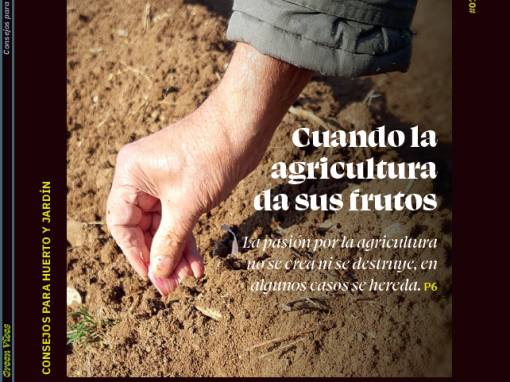Flower Seeds for Winter Planting
Flower Seeds for Winter Planting. For some time in Cutivers Eco we have a wide variety of organic seeds. Among these seed varieties you have a wide range of flower seeds for planting in winter. In this article we are going to talk about these seeds and what benefits they can bring to us as well as to the place where we sow or plant them.
Benefits of flowers for planting in winter
Among the many benefits that these plants can bring us, we are going to highlight 3 above the rest. We are going to mention and develop them below:
- They attract pollinators.
- They are edible flowers.
- They attract insects and auxiliary fauna.
Flower seeds that attract pollinators
The presence of butterflies, bees and birds in our orchards, terraces and food forests is very important. It brings beauty and life to our gardens, but that’s not the only reason to invite them. Many ornamental and edible plants depend on these colorful creatures to transfer pollen from one flower to another. And that simple act of pollination and cross-pollination ensures that plants produce seeds and fruit, allowing you to achieve larger and better quality fruit and vegetable crops.

These pollinators have different consumption needs. Bees need pollen and nectar while hummingbirds and butterflies only need nectar. Hence the need to implement different types of flowers to cover a wide spectrum of these pollinators.
Edible flower seeds
Not only crop plants feed us, many flowers are edible and we don’t know it. In addition, these flowers have very distinct flavors. Some are sweet, some are salty, some are spicy. Edible flowers are a whole world to discover. In fact, they are being used more and more in haute cuisine.

Edible flowers are not only used as garnish or to give a touch of flavor and color to dishes. Edible flowers also provide biologically active substances such as vitamins A, C, riboflavin, niacin, minerals such as calcium, phosphorus, iron and potassium, benefiting the health of those who consume them.
Flower seeds that attract insects and auxiliary fauna
Climate change, coupled with habitat loss, is causing thousands of beneficial insects to disappear. The presence of insects indicates good environmental quality and healthy ecosystems and micro-ecosystems. Thanks to them, pests in the garden or orchard can be controlled or partially mitigated.
Now we are going to tell you some of these insects and auxiliary fauna that help us so much:
- Ladybugs: these small beetles belong to the family Coccinellidae. Their use has been promoted in gardens and crops as they are especially voracious on plant mites, aphids, mealybugs and whitefly larvae.
- Beetles: they are part of a group of beetles. Despite their bad reputation among people, beetles are insects that play a fundamental role in the proper development of ecosystems. Among its functions is to reincorporate nutrients into the soil by helping in the decomposition of organic matter from plants or animals and, on the other hand, to help in pollination. When some beetles approach flowers, pollen sticks to their bodies and is then released to other plants of the same species.
- Butterflies: unlike beetles, butterflies do enjoy acceptance in gardens, in fact, we thoroughly enjoy their presence. In addition to their aesthetic value, they are essential for food chains and are very important for birds, bats and insectivorous mammals. They also influence pollination and natural pest control.
- Wasps: although they are more repulsive than bees, wasps are indispensable. Thanks to them, flowers and crops are pollinated and insect pests that transmit diseases to humans are controlled.
- Spiders: although they are not insects, we had to include them in this list. Insects have six legs, while spiders have eight. If there is an overpopulation of insects, spiders will control it. In fact, they can eat other spiders, so there will not be an excessive number of spiders. They feed on mosquitoes, flies and moths. They are also in charge of regenerating forests, even in burned areas you will observe how there are spiders working to recover the area.
- Centipedes: they are not insects either. They act as natural fumigants as they help to control some pests that affect crops such as beetle larvae, grasshoppers or crickets. In addition, they also feed on spiders and other insects such as cockroaches.

No, not all insects work for the good functioning of our orchard or garden. Some are harmful: aphids, whiteflies, wireworms… Maintaining a healthy environment is synonymous with preserving its biodiversity, both beneficial and non-beneficial insects. It is important to keep this in mind when you go to control possible pests.
If you want to create your own ecosystem, whether in your orchard, terrace, garden, food forest… Here we are going to leave you the link to our store, just to the seeds section where you can find these wonderful edible flower seeds for planting in winter.
Related entries


